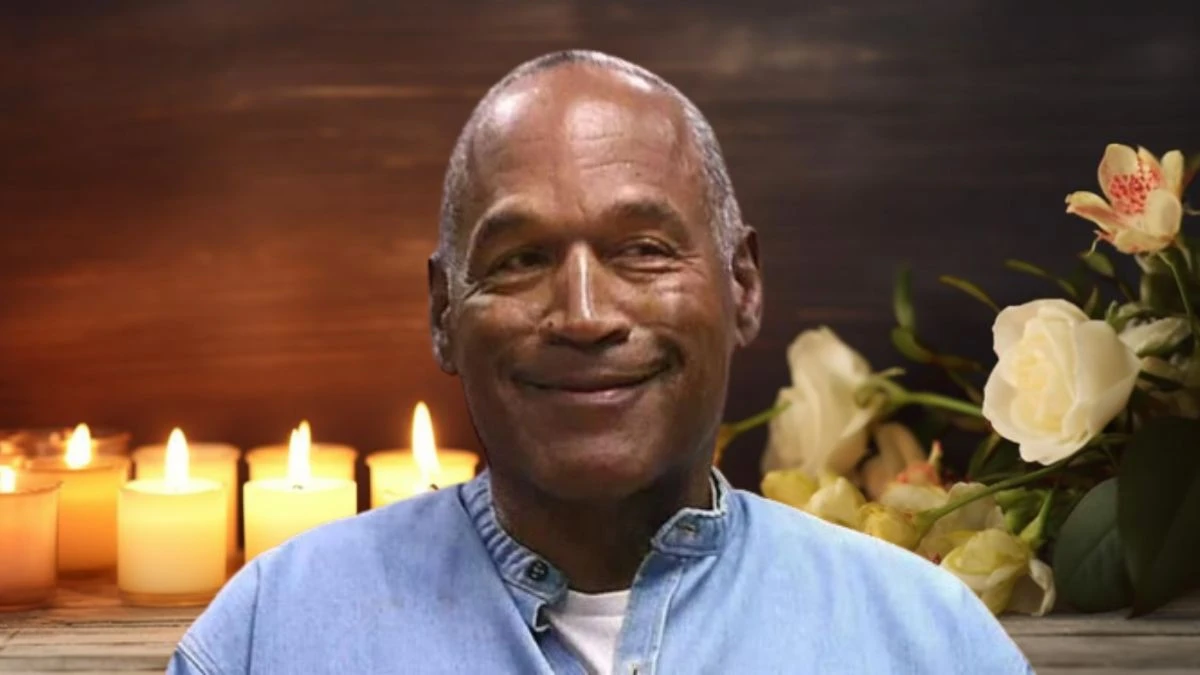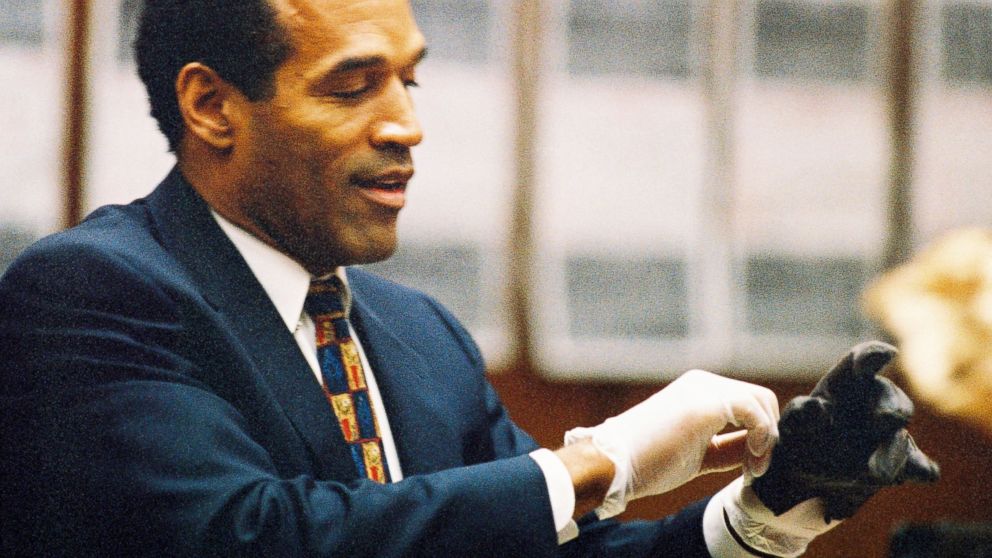On June 12, 1994, the world was shocked by the murders of Nicole Brown Simpson and Ronald Goldman, which thrust OJ Simpson into the center of one of the most infamous legal cases in American history. The question of whether OJ Simpson killed anybody remains a topic of intense debate and speculation, even decades after the trial. This article aims to provide a comprehensive analysis of the evidence, legal proceedings, and public perception surrounding the case, offering insights into the complexities of this high-profile controversy.
As one of the most sensational trials in modern history, the OJ Simpson case captivated millions of viewers worldwide. The media coverage was unprecedented, turning the trial into a national spectacle. Despite the overwhelming evidence presented during the trial, Simpson was acquitted of the murders, leaving many unanswered questions and sparking debates about race, justice, and celebrity privilege in the American legal system.
Through this article, we will explore the facts, analyze the evidence, and examine the lasting impact of the case on society. Whether you're a legal enthusiast, a history buff, or simply curious about the truth behind the OJ Simpson case, this article will provide a detailed and balanced perspective on one of the most controversial topics in recent history.
Read also:Julius Malemas First Wife A Comprehensive Insight Into Her Life And Influence
Table of Contents:
- Biography of OJ Simpson
- The Crime and Investigation
- Key Evidence in the Case
- The Trial: A Nation's Obsession
- The Defense's Strategy
- The Prosecution's Case
- The Verdict and Aftermath
- Public Opinion and Legacy
- Conspiracy Theories Surrounding the Case
- The Impact on Society
Biography of OJ Simpson
Orenthal James "OJ" Simpson, born on July 9, 1947, in San Francisco, California, is one of the most celebrated athletes in American history. Before his legal troubles, Simpson achieved remarkable success both on and off the field. Below is a summary of his life and career:
Early Life and Career
OJ Simpson grew up in a working-class neighborhood in San Francisco. Despite facing numerous challenges, including poverty and racial discrimination, Simpson excelled in sports from a young age. His talents earned him a scholarship to the University of Southern California (USC), where he became a standout football player.
Professional Achievements
After graduating from USC, Simpson was drafted by the Buffalo Bills in the 1969 NFL Draft. During his professional career, he set numerous records and was inducted into the Pro Football Hall of Fame. His speed, agility, and charisma made him a household name and a beloved figure in American sports.
| Full Name | Orenthal James Simpson |
|---|---|
| Date of Birth | July 9, 1947 |
| Place of Birth | San Francisco, California |
| Profession | Former NFL Player, Actor, and Broadcaster |
| Spouse | Nicole Brown Simpson (deceased) |
The Crime and Investigation
The murders of Nicole Brown Simpson and Ronald Goldman occurred on the night of June 12, 1994. Nicole, Simpson's ex-wife, and Goldman, a friend of Nicole's, were found brutally stabbed outside Nicole's home in Brentwood, Los Angeles. The investigation quickly turned its focus on OJ Simpson, who had a tumultuous relationship with Nicole.
Evidence at the Crime Scene
- A bloody glove was found outside Nicole's home, which prosecutors claimed matched Simpson's size.
- A bloody footprint was discovered near the crime scene, allegedly matching Simpson's shoe size and brand.
- Nicole's blood was found in Simpson's Ford Bronco, which he was driving during the infamous low-speed chase.
Key Evidence in the Case
The prosecution presented a wealth of evidence during the trial, much of which pointed to Simpson's involvement in the murders. However, the defense successfully cast doubt on the reliability and handling of this evidence.
Read also:Ryan Kelly Of Celtic Thunder A Journey Through Music And Passion
Forensic Evidence
Forensic experts testified that DNA found on the bloody glove and at the crime scene matched Simpson's. However, the defense argued that the evidence had been mishandled by law enforcement, potentially leading to contamination.
The Trial: A Nation's Obsession
The OJ Simpson trial, officially known as People v. Simpson, began in November 1994 and lasted for nine months. It was one of the first trials to be televised in its entirety, captivating audiences across the globe.
Media Coverage
The media played a significant role in shaping public perception of the trial. The extensive coverage, combined with Simpson's celebrity status, turned the case into a cultural phenomenon. Critics argued that the media circus detracted from the seriousness of the legal proceedings.
The Defense's Strategy
Simpson's legal team, often referred to as the "Dream Team," employed a multifaceted defense strategy. They focused on discrediting the evidence, highlighting racial bias within the Los Angeles Police Department (LAPD), and portraying Simpson as a victim of a flawed investigation.
Key Arguments
- Mark Fuhrman, a detective involved in the case, was exposed for making racially charged comments, raising questions about the integrity of the investigation.
- The defense argued that the bloody glove did not fit Simpson during a dramatic courtroom demonstration.
The Prosecution's Case
The prosecution, led by Marcia Clark and Christopher Darden, presented a compelling case against Simpson. They relied heavily on forensic evidence, witness testimonies, and the timeline of events to establish Simpson's guilt.
Key Witnesses
- Kato Kaelin, Simpson's houseguest, testified about hearing noises on the night of the murders.
- Linda Tripp, a friend of Nicole's, provided testimony about Nicole's fears regarding Simpson.
The Verdict and Aftermath
On October 3, 1995, the jury delivered its verdict: OJ Simpson was not guilty of the murders of Nicole Brown Simpson and Ronald Goldman. The decision sparked widespread reactions, with many expressing disbelief and outrage. Despite the acquittal, Simpson was later found liable in a civil trial and ordered to pay millions in damages to the victims' families.
Public Reaction
The verdict divided the nation along racial lines, with many African Americans celebrating the decision as a victory against systemic racism, while others viewed it as a miscarriage of justice.
Public Opinion and Legacy
The OJ Simpson case continues to resonate in American culture, serving as a case study in media, race relations, and the justice system. Documentaries, books, and television series have been produced to revisit the trial and its implications.
Legacy
Simpson's legacy remains complex. While some view him as a victim of a flawed investigation, others believe he got away with murder. His later legal troubles, including a 2008 armed robbery conviction, further tarnished his reputation.
Conspiracy Theories Surrounding the Case
Over the years, numerous conspiracy theories have emerged regarding the OJ Simpson case. Some suggest that Simpson was framed by the LAPD, while others believe that someone else committed the murders. Despite the lack of concrete evidence, these theories persist in popular culture.
Popular Theories
- Some theorists argue that Nicole's stalker, Fuad Muhammed, may have been involved in the murders.
- Others speculate that Simpson's associates orchestrated the crime to frame him.
The Impact on Society
The OJ Simpson case had a profound impact on American society, influencing discussions about race, celebrity privilege, and the justice system. It highlighted the need for reform in law enforcement practices and increased public awareness of the role media plays in shaping legal narratives.
Social Implications
The case exposed deep-seated racial tensions in the United States and prompted conversations about systemic inequality. It also raised questions about the treatment of domestic violence victims and the role of privilege in the legal system.
Conclusion
The question of whether OJ Simpson killed anybody remains a subject of intense debate. While the evidence presented during the trial strongly implicated Simpson, the legal system ultimately found him not guilty. The case serves as a reminder of the complexities and imperfections of the justice system and continues to influence societal discussions about race, media, and celebrity.
We invite you to share your thoughts and opinions in the comments section below. For further reading, explore our other articles on legal history and societal issues. Thank you for joining us on this journey to uncover the truth behind one of the most controversial cases in modern history.
References:
- People v. Simpson (1995)
- "The People v. O.J. Simpson: American Crime Story" (FX Series)
- "OJ: Made in America" (ESPN Documentary)


